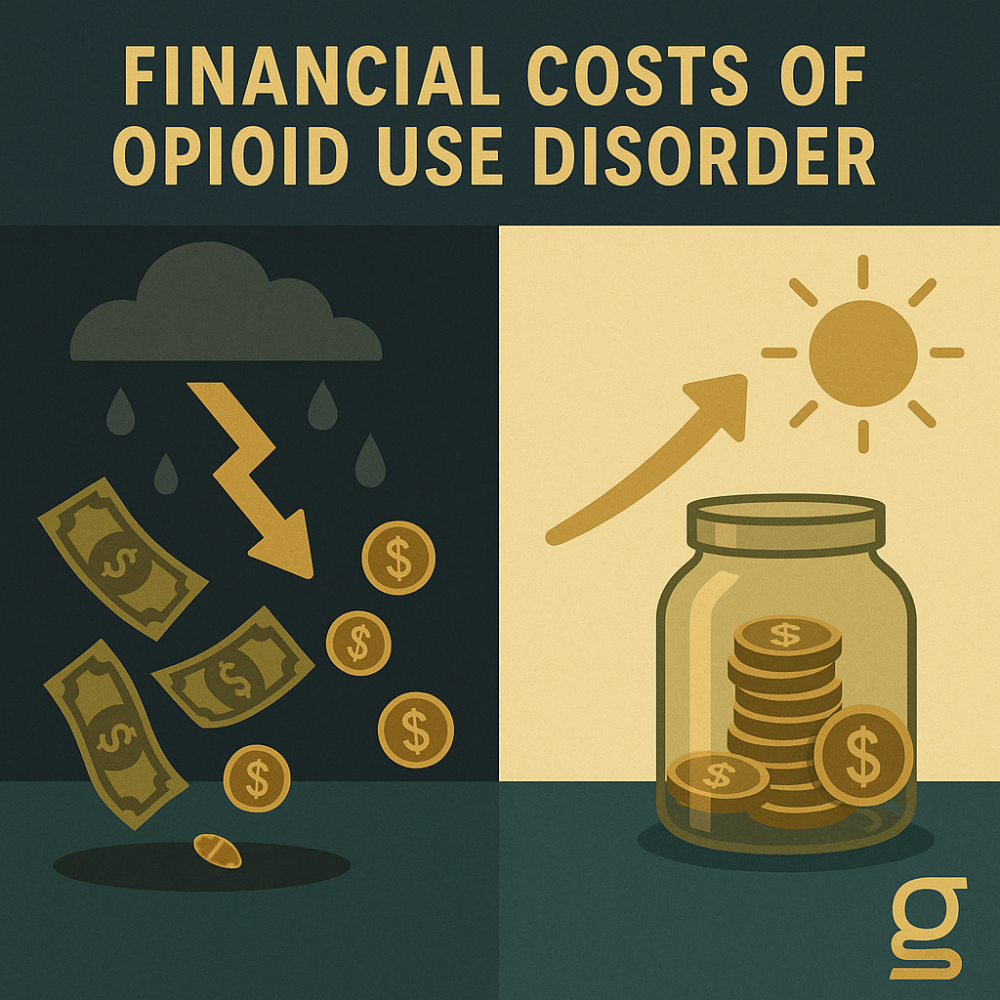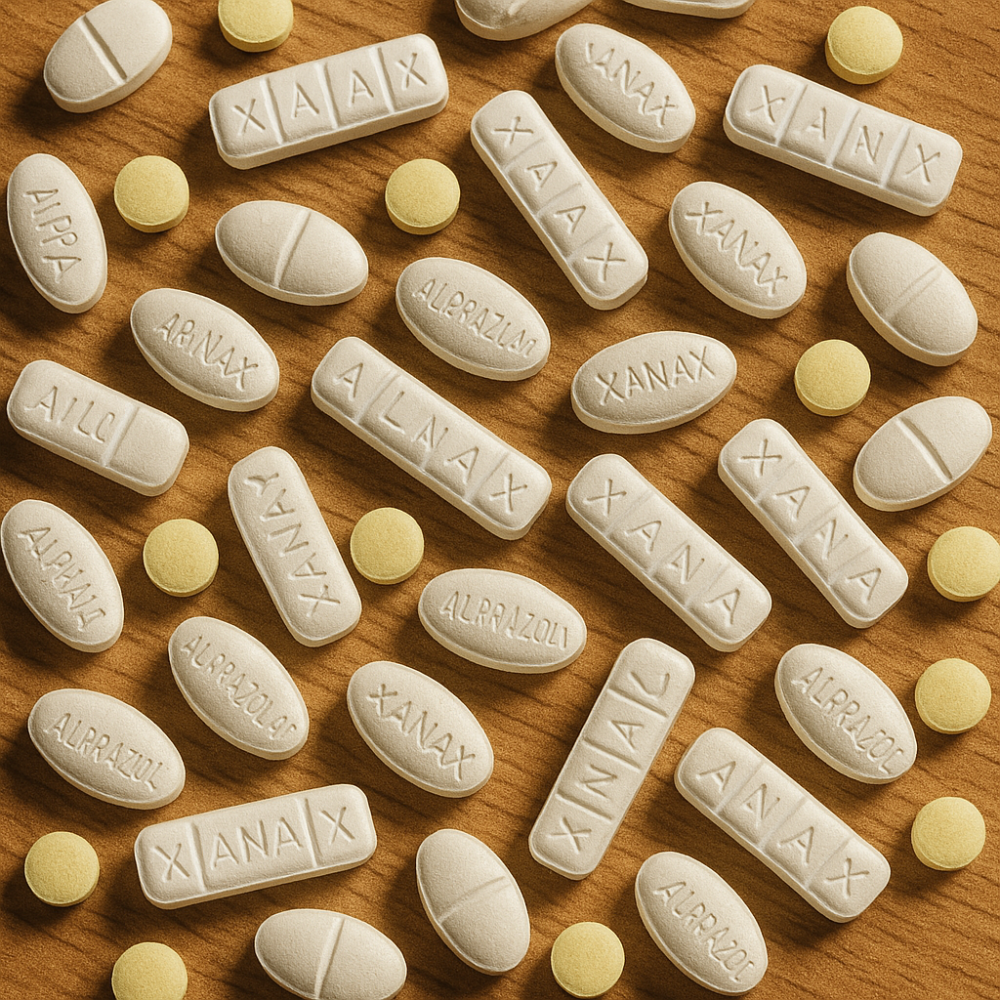Polysubstance use is taking two or more drugs simultaneously or within a short period. Combined drug use may include prescription drugs, illegal drugs, or alcohol. Dangers of polysubstance use include an increased chance of falls, risky behavior, physical or mental harm, or overdose, all of which may result in death.
The Centers for Disease Control and Prevention cite startling facts about polysubstance use, warning that over 250 Americans die every day from drug use, and nearly half of overdose deaths involve polysubstance use.1
Polysubstance Use May be Intentional or Unintentional
The National Institute on Drug Abuse statistics reported that almost 92,000 people in the United States died from a drug-involved overdose in 2020, primarily illicit drugs and prescription opioids.2
Just because your doctor prescribed a drug does not make it safe. If you do not use medication as prescribed or fail to tell your doctor about other prescribed or illegal drugs you are using, the combination may be lethal. Never take a drug that your doctor has not prescribed for you, and always use it as prescribed by your doctor.
If you are an intentional polysubstance user, you may deliberately take a drug to enhance or alter the effects of other drugs you are taking. However, you may be unknowingly using a mixed substance. An example of unintentional polysubstance use is when you take an illegally sourced drug you do not know has been mixed with another drug.
Unintentional polysubstance use frequently occurs when drug dealers mix their products with deadly fentanyl. Almost 85 percent of overdose deaths involve fentanyl, heroin, cocaine, or methamphetamine.3 Most often, overdose deaths result from a mixture of these drugs.
Polysubstance Use and Stimulants
Illegal drugs like cocaine, ecstasy (MDMA), methamphetamines, and prescription drugs like Adderall and Dexedrine are known as “uppers” because they stimulate the central nervous system, increasing alertness, energy, and a sense of euphoria.4
Taking too great a dose, combining one stimulant with another, or combining a stimulant with other drugs is dangerous and may lead to liver damage, brain damage, heart damage, or death.
Combining stimulants can cause a hyper state of alertness, extended wakefulness, and loss of appetite. Severe reactions, including rapid breathing, psychosis, paranoia, heart attack, increased body temperature, stroke, tremors, or seizures, may signal an overdose and should be considered medical emergencies.
Polysubstance Use and Depressants
Doctors prescribe depressants like Valium, Xanax, Halcion, Ativan, and Ambien to relieve insomnia, anxiety, and muscle spasms and prevent seizures.5 Opioids and benzodiazepines are also classified as depressants and have a sedative effect.
When used illegally at high doses or combined with other drugs, the user may experience intense euphoria, making depressants valuable as street drugs. If you combine a depressant with other depressants, including alcohol, your breathing may become so slow that brain damage or death can occur.
Besides a dangerously low respiratory rate, warning signs of an overdose may include an altered mental state, confusion, seizures, respiratory distress, tremors, and unconsciousness.6
If you have taken a depressant long-term or at high doses, you should never stop it abruptly. Withdrawing from depressants can be life-threatening and should always be done under close medical supervision.
Mixing Stimulants and Depressants
Taking a stimulant and depressant together is very dangerous and, unfortunately, very common. The practice of “speedballing,” combining an opioid like heroin with a stimulant like cocaine or methamphetamine, has a high potential for overdose.
The National Institute on Drug Abuse warns that side effects of taking a stimulant and depressant concurrently may include:7
- Incoherence
- Stupor
- Blurred vision
- Mental impairment
- Severe sleep deprivation
- Uncontrolled motor skills
- Increased risk of fatal stroke, heart attack, aneurysm, or respiratory failure
You have no way of knowing what an illegally purchased drug contains. Drug dealers often mix speedballs and other street drugs with fentanyl, which is 50 times more potent than heroin. You may unintentionally get a dose that kills you.
Whether you are combining stimulants and depressants to achieve a more significant euphoric effect, to decrease the adverse effects of a prescribed depressant, or for another reason, you may be risking your life.
Polysubstance Use and Alcohol
Mixing drugs and alcohol is another dangerous practice of polysubstance users. If you consume alcohol, which is a depressant, with another depressant, your breathing and heart rate could slow to dangerous, possibly fatal, levels.
The CDC warns that the combination of alcohol and other drugs puts you at an increased “risk of overdose and serious damage to the brain, heart, and other organs.”8
Additionally, using drugs and alcohol may worsen symptoms of depression and anxiety, intensify side effects of sleep meds and pain meds, cause a dangerous rise in blood pressure, impair judgment, motor control, and reaction time, and adversely affect your quality of sleep.9
Are you or someone you love struggling with substance abuse?
Contact Us
Studies Find Common Factors in Polysubstance Use
A study published in the International Journal of Drug Policy found that most people who use multiple drugs have a history of drug use lasting years or decades.10 The most common reasons people combine drugs include:
- Deliberately trying to increase the psychoactive effect by adding drugs
- Attempting to manage unwanted side effects of a drug
- Trying to self-medicate chronic pain, anxiety, or depression
- Trying to manage cravings or other withdrawal symptoms
According to a study published in the American Journal of Public Health, young, white, unemployed adults without health care coverage and with a lower level of education have a higher risk of polysubstance use. People living with a disability or suffering from anxiety or a mood disorder were also more likely to use multiple drugs, alcohol, or tobacco.11
Researchers continue to identify a disturbing upward trend in drug and alcohol use since the COVID-19 pandemic began. Various studies have found a significant rise in substance use and drug overdoses in the United States since the government declared the pandemic a national emergency in March 2020.
Provisional data from the CDC identified an increase of 28.5 percent in drug overdose deaths in the United States between April 2020 and April 2021. Many of those deaths likely involved polysubstance use.
How to Safely Detox from Multiple Drugs
Withdrawal symptoms vary depending on the drug or combination of drugs used and can be severe or even life-threatening. Whether you use one drug or multiple drugs concurrently, enrolling in a quality medical detoxification program ensures you will be safer and more comfortable throughout the process.
Medical detox facilities provide round-the-clock patient monitoring of vital signs and IV fluids containing medications and nutritional supplements to help decrease cravings and make you more comfortable. Some detox centers offer medication-assisted detox and medication replacement therapy. You remain under constant medical supervision, ensuring a quick response to any adverse withdrawal symptoms.
Gallus Medical Detox
Detox is the first step in your recovery process and can be frightening and uncomfortable. However, specialized programs like Gallus Medical Detox put your safety, comfort, and dignity first.
Gallus is considered an industry leader in medical detox. Our compassionate staff has decades of experience working with polysubstance detox. We are recognized by the Joint Commission, the nation’s largest standards-setting and accreditation body in healthcare, as providing excellence in patient care and clinical expertise. We are also recognized by the American Society of Addiction Medicine (ASAM) level 3.7 as a medically monitored inpatient detoxification center.
The Gallus Method is a proprietary program that provides the highest quality care and individualized treatment plans to deliver outstanding patient outcomes. We have used the latest evidence-based medical protocols based on the safest and most effective procedures to design our detoxification programs.
At Gallus, we can help you detox safely from any addictive substance, including opioids, stimulants, benzodiazepines, alcohol, or any combination of substances at the same time. Contact us for more information.
Sources
- https://www.cdc.gov/stopoverdose/polysubstance-use/index.html
- https://nida.nih.gov/drug-topics/trends-statistics/overdose-death-rates
- https://www.cdc.gov/drugoverdose/featured-topics/VS-overdose-deaths-illicit-drugs.html
- https://nida.nih.gov/publications/drugfacts/prescription-stimulants
- https://www.dea.gov/sites/default/files/2020-06/Depressants-2020.pdf
- https://www.verywellmind.com/can-you-overdose-on-antidepressants-1066859
- https://archives.drugabuse.gov/blog/post/real-teens-ask-about-speedballs
- https://www.cdc.gov/stopoverdose/polysubstance-use/index.html#:~:text=Drinking%20alcohol%20while%20using%20other%20drugs%20isn%E2%80%99t%20safe.,damage%20to%20the%20brain%2C%20heart%2C%20and%20other%20organs
- https://mcpress.mayoclinic.org/healthletter/dangers-of-mixing-antidepressants-and-alcohol/#:~:text=%20Combining%20the%20two%20may%20cause%20the%20following%3A,you%20take%20a%20monoamine%20oxidase%20inhibitor…%20More%20
- https://www.ncbi.nlm.nih.gov/pmc/articles/PMC7770041/
- https://ajph.aphapublications.org/doi/full/10.2105/AJPH.2019.305412


 Steve B
Steve B 

 Casey Wilson
Casey Wilson